This is a compilation of famous military leaders whose strategic influence shaped the way history unfolded. This list includes the honorable, the despised, and the courageous military leaders who were not afraid to fight against all odds. The compilation includes leaders, those ranked and those whose command pre-dated the formal establishment of ranks, as well as senior commanders in irregular militaries who may not hold rank. Here are the greatest military leaders in history presented in chronological order.
Military Leaders of Antiquity
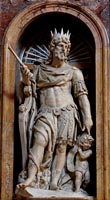 |
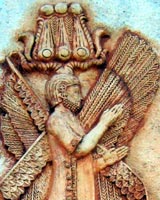 |
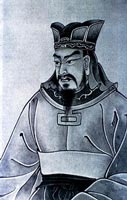 |
| King David (c. 1040–970 BC) Nation: Kingdom of Israel David is very important to Jewish, Christian and Islamic doctrine and culture. In the Bible, David became the second King of Israel after Saul. In prophecy, the promised Messiah by God comes through the line of David, Jesus Christ. |
Cyrus the Great (c. 600/576–530 BC) Nation: Achaemenid Empire Under Cyrus the Great, the Persian empire embraced all the previous civilized states of the ancient Near East. The empire expanded greatly and acquired much of Southwest Asia, Central Asia, and the Caucasus. |
Sun Tzu (c. 544-496 BC) Nation: China An ancient Chinese philosopher, strategist, and military general who is said to have written The Art of War, an ancient Chinese text on military strategy. |
 |
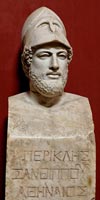 |
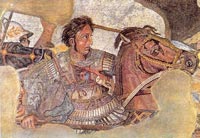 |
| Leonidas (c. 540-480 BC) Nation: Greece A Greek hero-king of Sparta, the 17th of the line of Agiad, third son of Spartan King Anaxandridas II. He is famous for his leadership at the Battle of Thermopylae. |
Pericles (c. 495–429 BC) Nation: Greece Influential, prominent Greek orator, statesman, and general of Athens during the city’s Golden Age, the period between the Persian and Peloponnesian wars. |
Alexander the Great (356-323 BC) Nation: Greece Established one of the largest empires of the ancient world, with boundaries from the Ionian Sea to the Himalayas. One of the most succesful military commanders, he was undefeated in battle. |
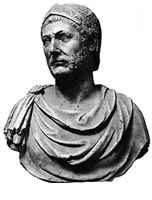 |
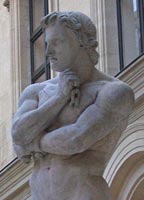 |
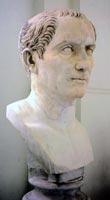 |
| Hannibal (247–183/182 BC) Nation: Punic Carthage A great military leader with successful skirmishes against the Roman Republic. Hannibal lived during a time of heavy conflict in the Mediterranean. |
Spartacus (c. 109–71 BC) Nation: Thracia Former gladiator who became an accomplished military leader of the slaves during the Third Servile War, a massive slave uprising against the Roman Republic. |
Julius Caesar (100-44 BC) Nation: Roman Republic Accumulated vast military power. His actions eventually led to his assassination, civil wars, and the creation of the Roman Empire. |
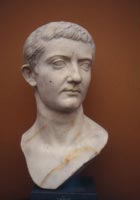 |
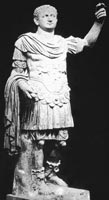 |
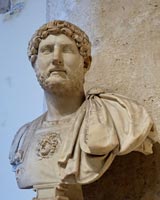 |
| Tiberius (42 BC-37 AD) Nation: Roman Empire Tiberius was one of Rome’s greatest generals, conquering Raetia, Dalmatia, Pannonia, and temporarily Germania; laying the foundations for the northern frontier. |
Titus (39-81 AD) Nation: Roman Empire Before becoming Emperor, Titus gained reputation as a military commander, serving under his father in Judaea during the First Jewish-Roman War. |
Hadrian (76-138 AD) Nation: Roman Empire Third of the Five Good Emperors of the Roman Empire. Great reputation as a military administrator and emperor. Hadrian was a philhellene and a humanist. |
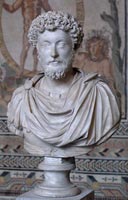 |
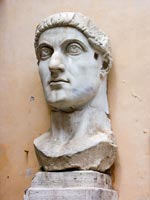 |
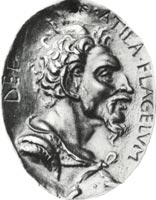 |
| Marcus Aurelius (121-180) Nation: Roman Empire Roman Emperor from 161 to 180 CE. He was regarded as a Stoic philosopher and the last of the Five Good Emperors. He believed in finding and preserving equanimity in the midst of conflict by following nature as a source of inspiration and guidance. |
Constantine the Great (c. 272-337) Nation: Roman Empire A.k.a. Saint Constantine or Constantine I. Roman Emperor from 306 to 337. First Roman emperor to convert to Christianity. |
Attila the Hun (c.406-453) Nation: Hunnic Empire Reigned as ruler of the Huns from 434–453. One of the most feared enemies of the Eastern and Western Roman Empires during his reign. |
Military Leaders of the High Middle Ages
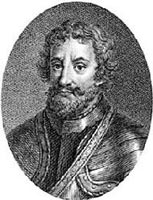 |
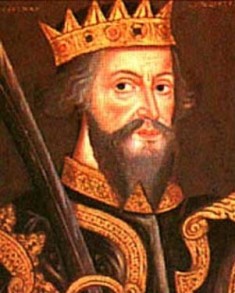 |
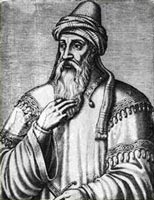 |
| Macbeth (c. 1005-1057) Nation: Scotland A king of the Scots who is best known from the fictional account by William Shakespeare. In the fictional account, he is portrayed as evil and ruthless. In reality, he was an able monarch who was greatly admired. |
William the Conqueror (c. 1028-1087) Nation: Normandy First Norman King of England, reigning from 1066 until his death in 1087. He had descended from Viking raiders and was Duke of Normandy under the title of William II since 1035. |
Saladin (1137/1138-1193) Nation: Egypt, Syria Founded the Ayyubid dynasty. Kurdish Muslim who became the first Sultan of Egypt and Syria. At the peak of his power, his rule included Yemen, Hejaz, Mesopotamia, Syria, Egypt, and parts of North Africa. |
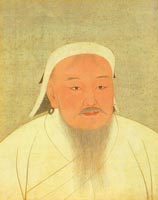 |
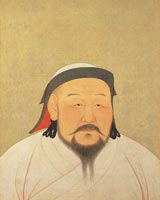 |
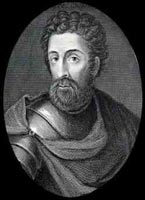 |
| Genghis Khan (1162-1227) Nation: Mongol Empire Born as Temujin, established the Mongol Empire and became the Great Khan. The empire became the largest empire in history. |
Kublai Khan (1215-1294) Nation: Mongol Empire Grandson of Genghis Khan. Second son of Tolui and Sorghaghtani Beki. Ruled as Emperor of China and established the Yuan Dynasty, which included present-day Mongolia, China, Korea, and other nearby areas. |
William Wallace (c. 1270-1305) Nation: Scotland Scottish landowner who became an effective leader during the Wars of Scottish Independence. He achieved many victories and was later knighted. Eventually he was captured and brutally executed. |
Military Leaders of the Late Middle Ages
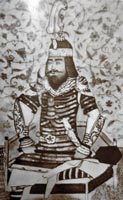 |
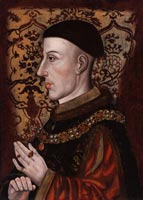 |
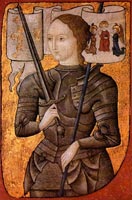 |
| Timur (1336-1405) Nation: Turkish Turkic ruler who conquered Central, South, and West Asia and founded the Timurid dynasty. He was called “Timur the Lame” in his language and had both Turkish and Mongolian origins. |
Henry V (1386-1422) Nation: England King of England from 1413 to 1422. He acquired much military experience while fighting lords who rebelled against his father, Henry IV. After his father’s passing, Henry quickly garnered rule of the country and initiated a war with France. His son, Henry VI, became the disputed King of France from 1422 to 1453. |
Joan of Arc (c. 1412-1431) Nation: France Led the French army to several significant victories during the Hundred Years’ War, which contributed to the coronation of France’s Charles VII. |
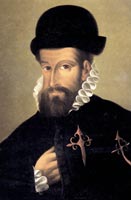 |
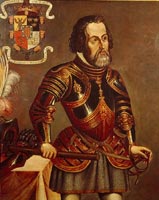 |
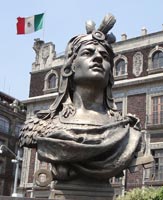 |
| Francisco Pizarro (c. 1471/1476-1541) Nation: Spain Spanish conquistador whose expedition conquered the Inca Empire. Compared to other conquistadors, Pizarro faced larger armies, had fewer men, and was far from Spanish outposts in the Caribbean which could have supplied provisions, arms, and men. |
Hernán Cortés (1485-1547) Nation: Spain Spanish Conquistador in the early 16th century. Led an expedition that fell the Aztec Empire and brought large portions of modern-day Mexico under the rule of the King of Castile. |
Cuauhtémoc (c. 1495-1525) Nation: Aztec Final Aztec ruler of Tenochtitlan, ruled from 1520 to 1521. At age 25 he was elected to the post by a council of noblemen, during the Spanish conquest. He defied the invaders and swore to sacrifice Christian all converts in Aztec lands to his gods. He was later captured and hung for treason, but became immortalized as a Mexican hero. |
Military Leaders of the Early Modern Period
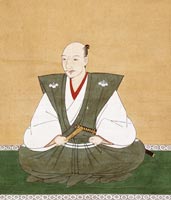 |
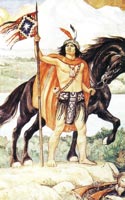 |
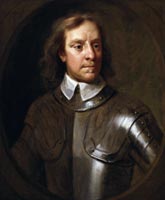 |
| Oda Nobunaga (1534-1582) Nation: Japan In the late 16th century, Nobunaga started the unification of Japan under the shogunate, which ruled Japan until the Meiji Restoration in 1868. |
Lautaro (1534-1557) Nation: Mapuche Young Mapudungun (“Mapuche”) military commander in Chile’s four year Arauco War (Araucanian War). Achieved victories against Spanish armies armed with lances, muskets and horses even when his own forces were armed with only spears and axes. |
Oliver Cromwell (1599-1658) Nation: England English military leader. Became Lord Protector of the Commonwealth of England, Ireland, and Scotland. |
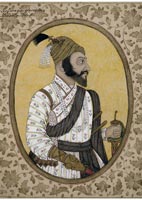 |
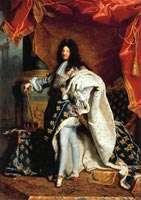 |
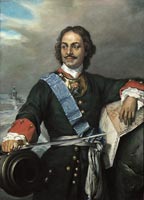 |
| Shivaji (1627-1680) Nation: Maratha Empire Founder of the Maratha Empire, which covered much of the Indian subcontinent and lasted until 1818. He established an independent Maratha kingdom with Raigad as the capital. In 1674, he was crowned chhatrapati, or, “paramount sovereign,” of the Marathas. |
Louis XIV (1638-1715) Nation: France Referred to as Louis the Great or the Sun King. Was a Bourbon monarch who ruled as King of France and Navarre. |
Peter the Great (1672-1725) Nation: Russia In numerous successful wars he expanded the Tsardom of Russia into an empire and Russia became a major European power. |
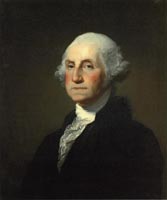 |
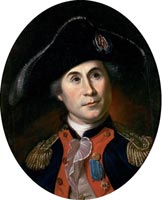 |
|
| George Washington (1732-1799) Nation: U.S.A A Founding Father of the United States. Was the commander of the Continental army during the American Revolution. |
Ethan Allen (1738-1789) Nation: Great Britain, U.S.A During the American Revolutionary War, Allen was a patriot and hero. Known best as a founder of Vermont and the capture of Fort Ticonderoga early in the American Revolutionary War. |
John Paul Jones (1747-1792) Nation: Scotland Scottish sailor who became the U.S.’s first well-known naval fighter in the American Revolution. Although he made enemies with a few American politicians, he was still honored for his skirmishes in British waters during the war. |
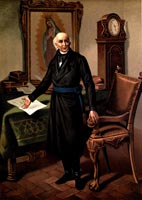 |
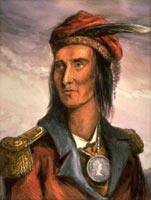 |
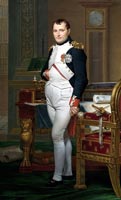 |
| Miguel Hidalgo y Costilla (1753-1811) Nation: Mexico Mexican priest and a leader of Mexico’s War of Independence. He had much enthusiastic support from intellectuals, liberal priests, and many poor folk who were angry after many years of oppression and hunger. |
Tecumseh (1768-1813) Nation: Shawnee Native American leader of the Shawnee and a large tribal confederacy (Tecumseh’s Confederacy) which resisted the United States during Tecumseh’s War and the War of 1812. |
Napoleon Bonaparte (1769-1821) Nation: France French military leader and emperor who rose to prominence during the French Revolution and associated European wars. |
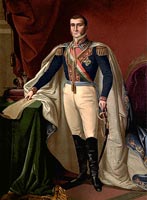 |
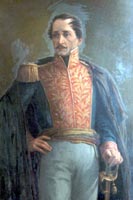 |
|
| Agustin de Iturbide (1783-1824) Nation: Mexico Built a military and political coalition that marched into Mexico City on September 27, 1821, ending the Mexican War of Independence. |
Francisco de Paula Santander (1792-1840) Nation: Columbia “The Man of the Laws.” A Colombian political and military leader during the 1810-1819 independence war of the United Provinces of New Granada (present-day Colombia). |
Military Leaders of Modern History
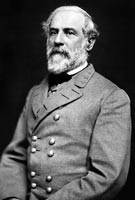 |
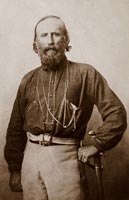 |
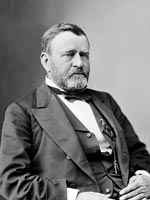 |
| Robert E. Lee (1807-1870) Nation: U.S.A Commander of the Confederate Army of Northern Virginia in the American Civil War. Lee was a great military leader and was honored even after his defeat in the Civil War. |
Giuseppe Garibaldi (1807-1882) Nation: Italy Key figure in the Italian Risorgimento. He fought and commanded in many military campaigns that would eventually unite Italy. |
Ulysses S. Grant (1822-1885) Nation: U.S.A Successful war general in the later half of the Civil War. His leadership brought the Union Army victory over their Confederate opponents. Later became a U.S. president. |
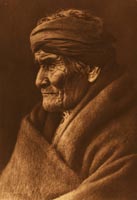 |
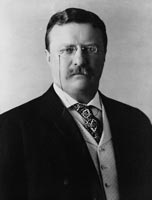 |
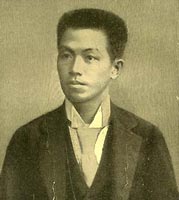 |
| Geronimo (1829-1909) Nation: Bedonkohe Apache Fought against Mexico and the United States in their attempts to expand into Apache tribal lands (Apache Wars). |
Theodore Roosevelt (1858-1919) Nation: U.S.A 26th U.S. president. Aside from politics, Roosevelt was famous for his achievements as an explorer, naturalist, hunter, author, and soldier. |
Emilio Aguinaldo (1869-1964) Nation: Phillippines Key figure in Philippines’ revolution against Spain and Philippine-American War (War of Philippine Independence) that resisted American occupation. |
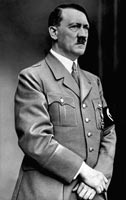 |
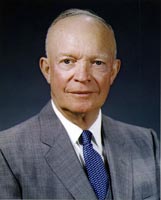 |
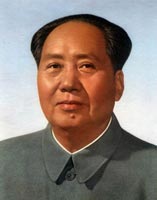 |
| Adolf Hitler (1889-1945) Nation: Germany Chancellor of Germany from 1933 to 1945. Ruled Nazi Germany as its dictator from 1934 to 1945. The cause of Nazism, World War II, and the Holocaust. |
Dwight D. Eisenhower (1890-1969) Nation: U.S.A 34th president of the U.S. Five-star general in the U.S. Army during World War II. Also Supreme Commander of the Allied Forces in Europe. |
Mao Zedong (1893-1976) Nation: China Chinese communist revolutionary, politician, and political theorist. Founder of the People’s Republic of China. He slowly rose to power during a period of great conflict and strife in China. |
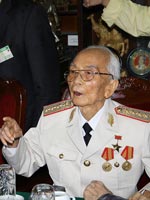 |
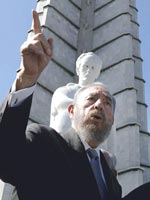 |
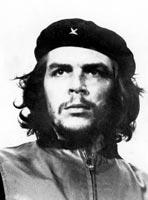 |
| Vo Nguyen Giap (born Aug 25, 1911) Nation: Vietnam Retired officer in the Vietnam People’s Army. A principal commander in the First Indochina War (1946-1954) and the Vietnam War (1960-1975). |
Fidel Castro (born Aug 13, 1926) Nation: Cuba Cuban communist revolutionary and politician. A key figure of the Cuban Revolution. Castro was politically a Marxist-Leninist. Cuba became a one-party socialist state under his administration. |
Che Guevara (1928-1967) Nation: Cuba A major figure of the Cuban Revolution. Che is an Argentine Marxist revolutionary, military theorist, diplomat, guerrilla leader, physician, and author. He is a popular symbol of counterculture and revolution. |
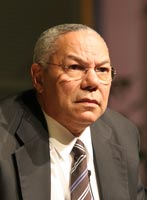 |
||
| Colin Powell (born Apr 5, 1937) Nation: U.S.A Retired four-star general in the U.S. Army and American statesman. He was the first African-American to serve as the United States Secretary of State, serving under President George W. Bush from 2001-2005 |